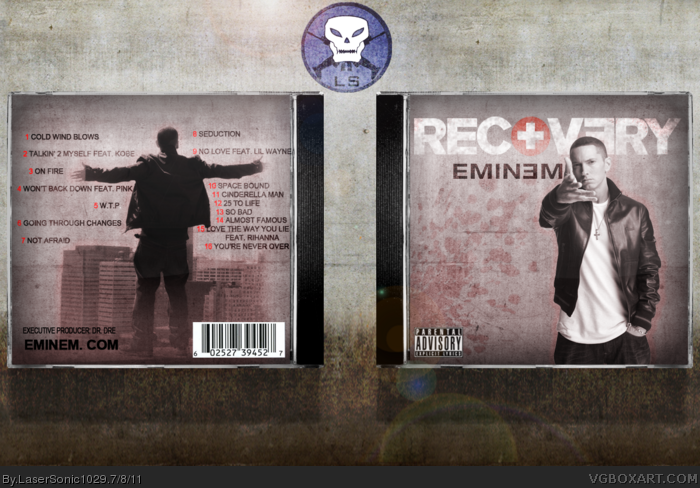
In 2006, the death of his best friend, DeShaun “Proof” Holton, because of a shooting incident caused him deeper trouble. Near Fatal OverdoseĪny help was short-lived. Addiction recovery was very far from his mind. When people attempted to tell him he had a problem, he didn’t believe them because he was using legally procured drugs, not heroin, cocaine or crack. He began mixing pills, adding Valium, Ambien, and Xanax to the mix. The rapper has admitted he had no recollection of when his drug use became an addiction or a problem-he only has fuzzy memories of those years when he was suffering from the condition-but the time came when he was taking as many as or more than 20 pills a day. Eminem acknowledged that all the pain he was feeling seemed to go away after taking the pill. The incident led him to seek other medication, including Vicodin, to help him relax at the end of the day and help him get some sleep. A well-meaning person gave him a pill that permitted him to get to sleep quickly and so make more efficient use of his time while on tour. It happened because the rapper was working long hours with little time to rest.
#Eminem recovery album songs in order crack
What's best about "Recovery" is that Eminem has emerged from the bleakness not only restored, but improved - and renewed.Eminem became addicted not to illicit street drugs like crack or heroin, but instead drugs many thought were harmless because they were legal: prescription opioids.

You can only play a character so much before it becomes a caricature.

While there are elements of the crazy, irreverent Slim Shady on the CD - especially with "W.T.P." ("White Trash Party") - Eminem is not trying to go be the rapper he was on "Without Me" or "The Real Slim Shady," which is good.

The tales Eminem tells are gripping, and his delivery is so razor-sharp he even outshines Lil Wayne on their collaboration, "No Love." "Space Bound" is a disturbing yet captivating song about a fatal attraction, and the excellent "Love the Way You Lie" deftly chronicles a violent, volatile relationship having Rihanna, who has been there, sing the chorus makes it even more poignant, and a bit chilling. And on "25 to Life," he even attacks the love of his life who has tormented him for the last time - not Kim, his ex-wife and favorite target, but hip-hop. On "Talking 2 Myself," he lashes out at himself for his jealousy over rappers who have overshadowed him (such as Lil Wayne and Kanye West) while his drug troubles have left the one-time rap champ punch-drunk. The best tracks on the album delve into Eminem's troubled psyche. he's always snappin at you/Marshall, what's happened that you/can't stop with these pills and your fallin off with yer skills and your own fans are laughing at you?" On the gripping "Going Through Changes," Eminem depicts a his miserable existence: grief-stricken over the killing of rapper and best friend Proof addled by drugs and hating what he's become - while his daughter watches his decline. But on "Recovery," he gets more even personal, which makes his stories even more striking and heartfelt. Just as he did with a few songs on "Relapse," Eminem details his painful battle with drug abuse with harrowing detail.

There is also more of Marshall Mathers than we've ever seen before on "Recovery" - and that's a good thing. What Eminem goes back to are the best elements that made him such a groundbreaking rapper when he made his debut over a decade ago: sick but hilarious humor clever, biting lyrics and great storytelling. For Eminem, that meant an album that consisted mostly of tired insults and violent imagery without any of the wit that once accompanied it, making it charmless, humorless and forgettable.Įven Eminem acknowledges as much on "Recovery," taking potshots at an album he now calls "trash" on "Not Afraid," he says, "Let's be honest that last Relapse CD was ehh/perhaps I ran them accents into the ground, relax/I ain't goin' back to that now." "Relapse" was a painful listen, with Eminem trying to recapture his former glory after four years off battling drug addiction. Eminem's latest album is called "Recovery," but a better title might have been "Resurrection." On his seventh studio release, Eminem has finally returned to form, which is to say he's obnoxious, misogynistic, violent and often hurtful, but through it all, rarely short of brilliant.Īfter his last album, 2009's "Relapse," many wondered whether rap's most successful and perhaps most talented rapper would ever do anything to merit the tag "brilliant" again.


 0 kommentar(er)
0 kommentar(er)
